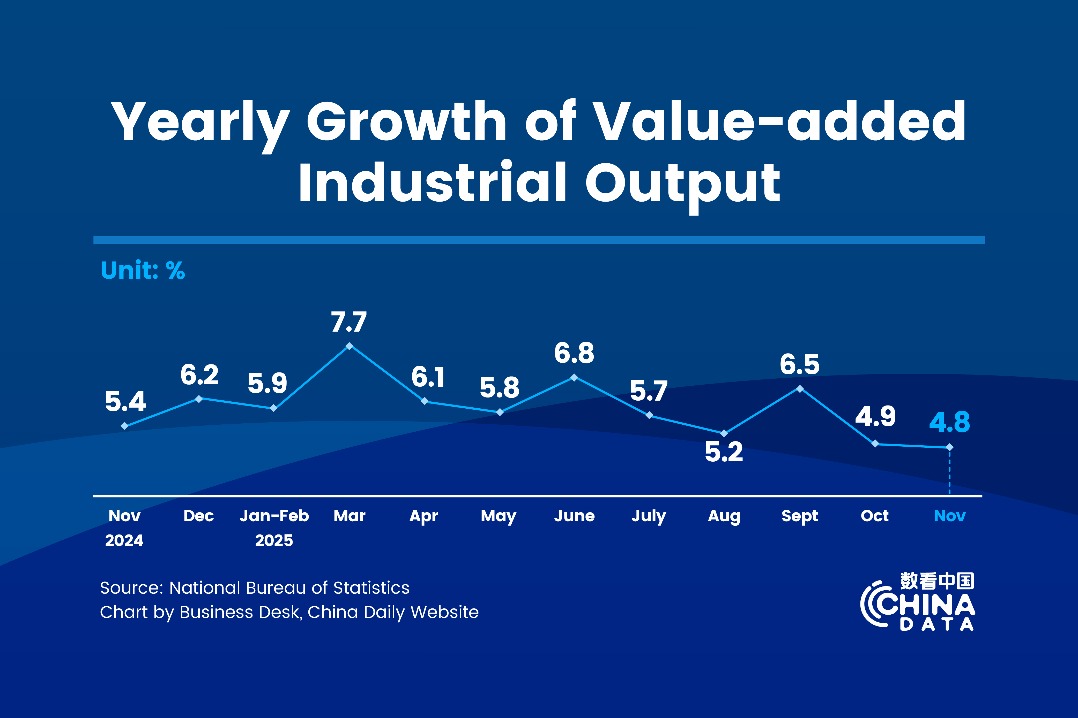Tariffs may put US infants at risk


The head of a Pittsburgh-based nonprofit organization that aims to prevent infant crib deaths argued that the US tariffs on Chinese products are putting infants at risk.
Sudden Infant Death Syndrome (SIDS) is the number one cause of infant mortality after the first month of age in the US, research finds.
In 1998, it was found that 90 percent of SIDS cases were caused by unsafe sleeping environments, almost exclusively in low-income households that could not afford a safe crib.
In that same year, Judith Bannon founded Cribs for Kids, making it her mission to reduce infant mortality rates by eliminating sleep-related deaths.
The organization provides products — including safe cribs, safe-sleep fabrics, bassinets and mesh for crib sides — to state health departments, hospitals and related entities and individual families.
Each product has a safety message attached and educational reminders to caregivers that the baby should sleep on its back.
"By following these practices and by putting babies to sleep on their backs in cribs with nothing else around them, we are able to reduce the numbers of babies dying of SIDS and accidental flipping action in bed," she said.
"We've been successful over the past 20 years by giving out or selling these products to our partners, most of whom give them for free to low-income families to reduce the numbers of these deaths in our country," Bannon told China Daily.
Since 1998, Cribs for Kids has distributed more than 600,000 safe sleeping environments to families in need, in addition to educating families and caretakers on the fundamentals of safe infant sleeping.
Bannon said before these tariffs were imposed, the company had locked in a price of $49.99 per crib for 20 years. Now, because of the tariffs, it has been forced to increase the price to $54.99 to compensate for higher costs.
Bannon explained that as a non-profit, Cribs for Kids is not required to pay federal taxes. "But with nearly all our supplies imported from China, tariffs are serving as a 10 percent tax that we are forced to absorb," she said.
In May, the United States increased the level of tariffs from 10 percent to 25 percent on approximately $200 billion worth of Chinese imports. The price for the crib, according to the organization's website, is now $59.99.
"It's really impacting not only our bottom line and our sales, but also the numbers of babies who are able to sleep safely throughout our country," Bannon said.
The organization has built up a working partnership with 1,450 health departments and hospitals across the country. Bannon said it's becoming a problem because the contracts with their partners are tied to the original price.
"They order products from us at discounted prices and we are able to offer them the discount pricing because we've ordered them and bought them from China," said Bannon.
Bannon said the cribs are not made anywhere in the US and are only available from China.
"We've tried to find any other manufacturers of this product in Vietnam, or India, or any other place, but all the factories are located in China," she said.
Bannon said many partners have been unable or refused to pay the cost difference, because "they mistakenly believe that China pays for the tariffs — not us," Bannon wrote in an op-ed piece in Florida Business Daily.
"People were told China is paying these tariffs. It is not true," said Bannon. "The American people are paying the tariffs on all these products coming in from China.
"The tariffs are paid for by organizations and companies like mine. When they come in to the port and come through security, we are hit with the tariffs we have to pay and we have to pass them on to our customers," she said.
When their partners can't afford to purchase cribs, they cannot distribute them to families in their local areas, and "we risk reversing the progress we've made on reducing infant deaths", Bannon wrote.
"Updating our paperwork to reflect the new price has burdened our staff, cost us money and forced us to raise our prices," she added.
If the trade war continues, Bannon said, her organization risks "going bankrupt".
"Unfortunately, this directly leads to higher death rates among low-income families," she stressed.
According to Bannon, other baby products have been exempted from tariffs, including car seats, high chairs, strollers and bike helmets, because they are deemed "safety equipment".
Despite a direct correlation between safe sleeping environments and deaths from SIDS, cribs are not yet classified as safety equipment.
According to Reuters, in the drive to pressure China in trade negotiations, US negotiators put child safety products back on the list, along with other products spared previously, from flat-panel televisions to Bluetooth headphones.
"Until cribs secure that designation — or better yet, until these tariffs are lifted — Cribs for Kids's mission will be curtailed and fewer lives will be saved," Bannon wrote.
As the Trump administration prepares new tariffs on US-China trade, in a hearing held in Washington on Monday, a wide range of US companies said that they had few alternatives other than China for producing some good.




































